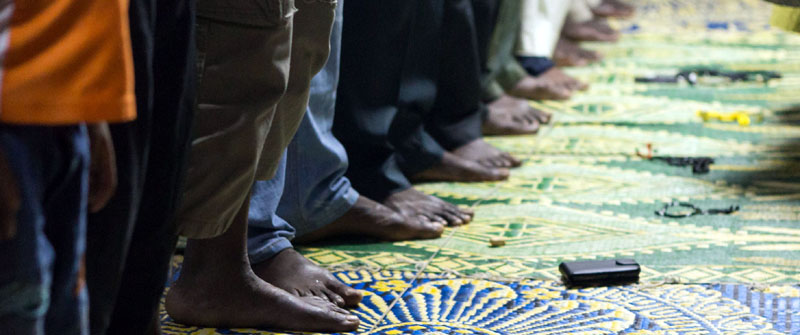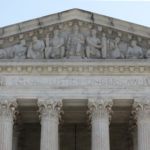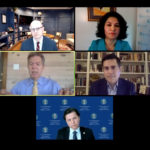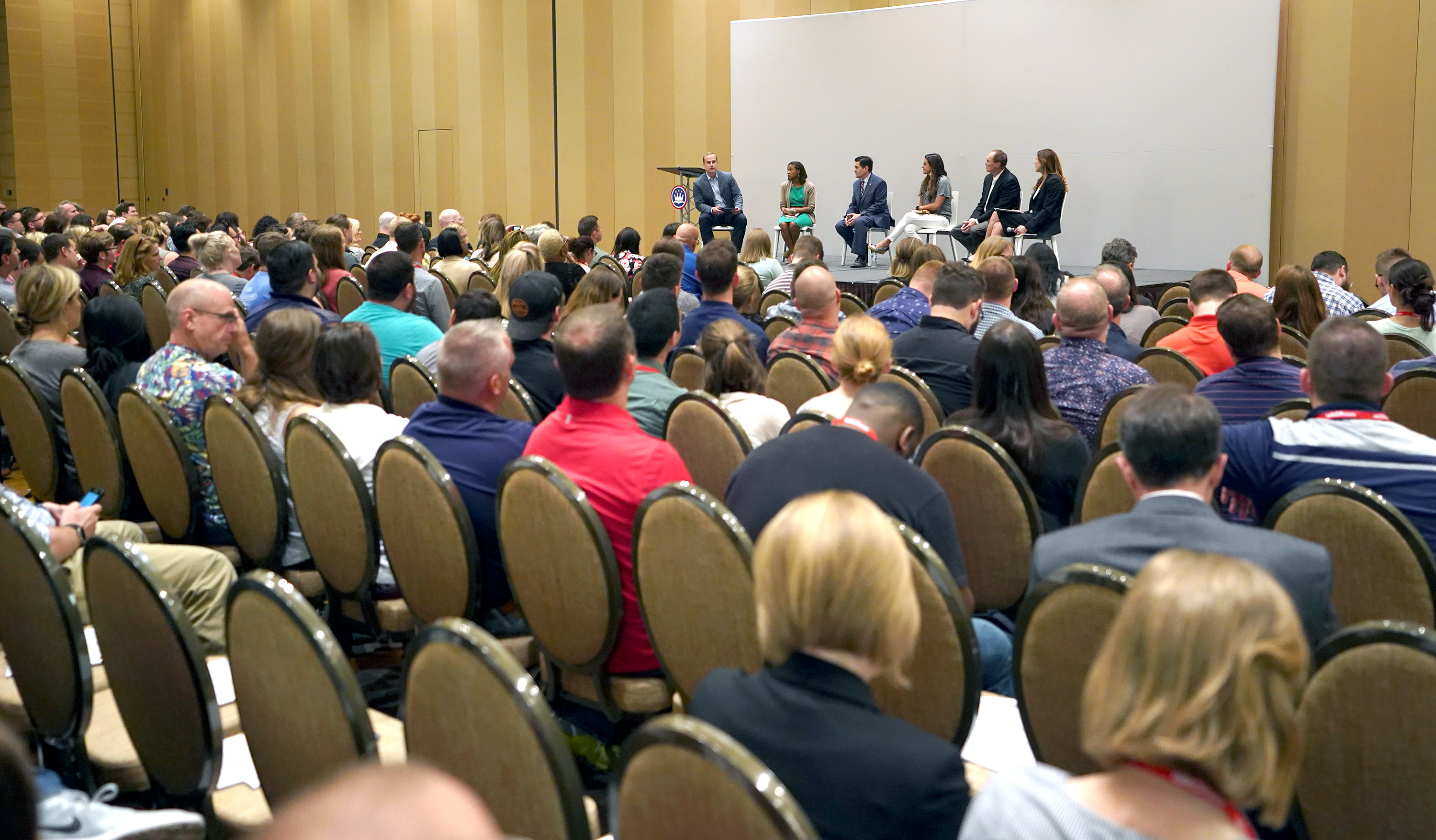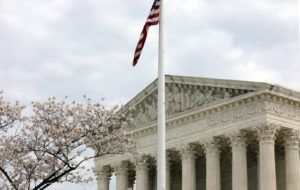
WASHINGTON (BP) — Travis Wussow and his family will arrive in the Middle East on behalf of Southern Baptists tomorrow (July 31) after some difficult farewells but with a convictional certainty about their move.
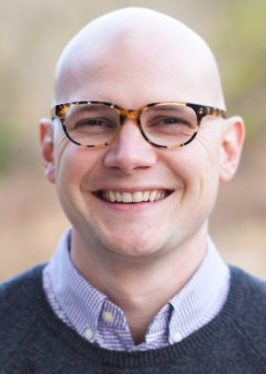 Saying goodbye after 15 years in Austin, Texas, was “really hard,” Wussow said before adding on behalf of his wife Katie and himself, “At the same time, neither of us have ever believed in anything as much as we believe in this work that we feel called to go do.”
Saying goodbye after 15 years in Austin, Texas, was “really hard,” Wussow said before adding on behalf of his wife Katie and himself, “At the same time, neither of us have ever believed in anything as much as we believe in this work that we feel called to go do.”
What they “feel called to go do” is establish an international religious freedom office for the Southern Baptist Ethics & Religious Liberty Commission in a region marked by religious strife. Wussow will serve as the ERLC’s director of international justice and religious freedom in the office.
ERLC President Russell Moore described establishment of the Middle East office as a “historic moment” for the entity when it was announced during the Southern Baptist Convention meeting in June. Moore commended Wussow’s “convictional leadership and Gospel courage,” saying his work “will be of immeasurable value in the ERLC’s goal of advocating for soul freedom around the globe.”
Under Wussow’s direction, the ERLC office will collaborate with other organizations to advocate for religious freedom and social justice internationally. It also will provide training resources on justice and religious liberty for churches and organizations, create material for raising awareness on the issues and work with Baptist Global Response to help meet human needs.
The move to the Middle East for Wussow, his wife and two daughters under 5 years of age follows years of professional and spiritual development that prepared him for the new post.
While practicing law in Austin, he gained valuable insight as a result of representing large energy companies.
“What I learned there is the power that having a good advocate can bring for somebody,” Wussow told Baptist Press in a telephone interview before his family and he left the country. “And the poor do not have good advocates. They don’t have them in the United States. They certainly don’t have them overseas.”
In sum, “what has really gripped my heart,” he said, is: “I want to be the kind of advocate for the poor and suffering across the world that they would not be able to get for themselves.”
Wussow, 32, and his wife served as advocates for and ministers to the poor in Austin the last several years before their big move. They lived in a lower-income part of the Texas capital for four years, did community development and mercy ministry work for five or six years, and helped start a non-profit organization that is meeting multiple needs.
An April 2013 prayer conference sponsored by International Justice Mission (IJM), which works on behalf of the poor and vulnerable overseas, proved pivotal for the couple.
“That was really the beginning of a sense that God wanted us to do this overseas,” Wussow said. “The scale of the problem globally is so vast that we felt compelled to enter into it and to help in whatever way the Lord wanted to use us.”
He served as a fellow for IJM and, after Moore became the ERLC’s president in June 2013, began discussions with the entity about what role he might play in its mission. He became legal consultant for the ERLC, and the conversations led to the opportunity to lead the new overseas effort.
Wussow served on the staff of The Austin Stone Community Church for about four years, fulfilling responsibilities at the multi-campus church as general counsel and executive director of central ministries.
Moving his family to set up the office in the Middle East offers two major advantages, Wussow told BP. “First, we will be able to develop real relationships with leaders and people the ERLC is working to serve,” he said. “Second, by living in the Middle East, we will begin to develop an understanding of the region that is very difficult to obtain any other way.”
Providing reliable information is a part of the mission he is particularly excited about, said Wussow, who holds both undergraduate and law degrees from the University of Texas.
People “don’t know what to believe and what to trust because there is, I think we need to acknowledge, a credibility problem,” he said, adding he sees providing information pastors, church leaders and other Southern Baptists “can count on” as “a big part of the international mandate.”
“They know that it’s actually true, and so they feel compelled to get involved,” he told BP.
Wussow appreciates that his status as an American lawyer doing work overseas has strengths and limitations — limitations that are helped by living in the Middle East.
Using Egypt as an example, he told BP, “I don’t know what Egypt needs. I can research. I can read a bunch of articles. Even so, I’m not going to understand what truly is best to make the situation better for Egyptian Christians and for the cause of religious liberty in Egypt.
“We’re going to have to work with Egyptians and learn from them and learn from their experience, because they’re going to know much better than we will what they need. As an advocate, I see my role in the lives of Egyptian Christians as really two things:
“[T]elling true stories about what’s happening to raise the right kind of awareness, a durable awareness about the situation that they’re actually in,” he said. “And then secondly, building a coalition or a constellation of partnerships that are on the ground that we can direct attention to, direct resources to, to actually change outcomes for people on the ground.”
Travis and Katie have made their marriage and daughters priorities, and he acknowledges there are concerns about moving their young family to the Middle East.
“[I]t’s something we have thought about a lot and really prayed about,” he said. “We wouldn’t be moving overseas if we didn’t feel like it was honestly best for our family and the girls.”
The ERLC and the Wussows believe it also will be best for many overseas who need an advocate.

